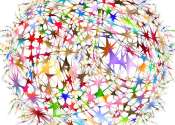AI learns physics to optimize particle accelerator performance
Machine learning, a form of artificial intelligence, vastly speeds up computational tasks and enables new technology in areas as broad as speech and image recognition, self-driving cars, stock market trading and medical diagnosis.









